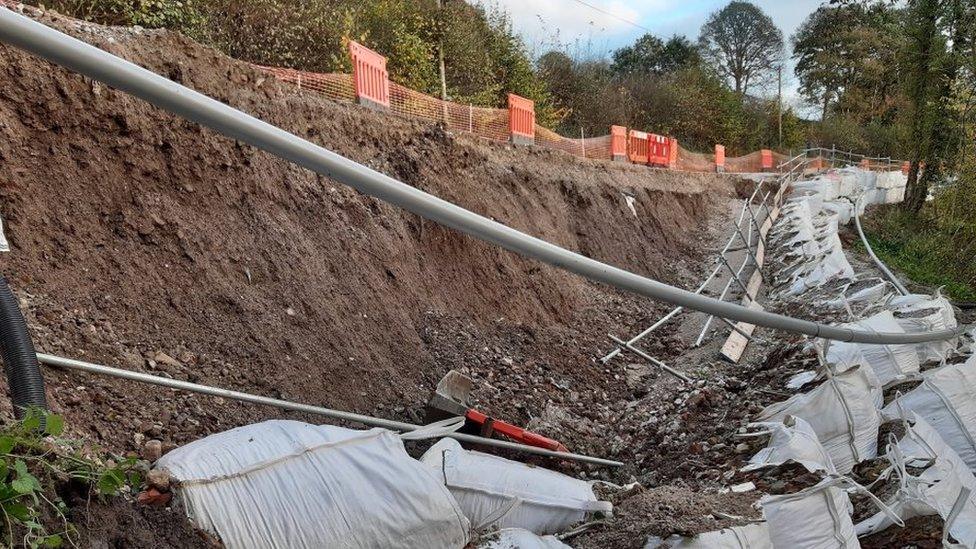Derbyshire landslip repairs are 'huge cost burden'
- Published
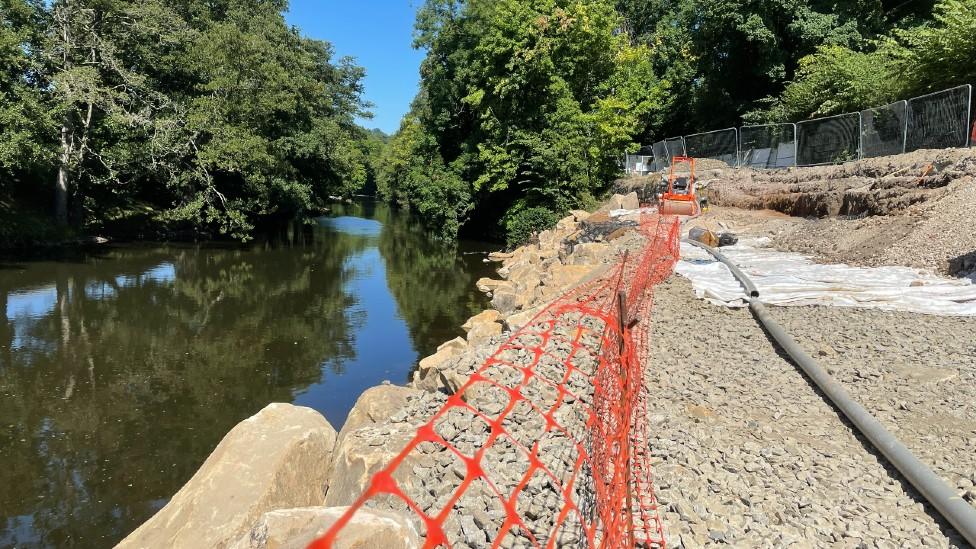
The council has 217 landslip incidents logged, with six, including Lea Road, big enough to force road closures
The bill for repairing roads damaged by landslips is putting a huge strain on budgets, officials in Derbyshire have said.
The county council said it was dealing with more than 200 cases, including six road closures.
Its budget to repair roads, pavements and bridges is £27m, but it said just one project could cost up to £15m.
With climate change bringing more extreme weather, the authority has called for more funding for repairs.
It said it had 217 landslip incidents logged, with six major enough to force road closures, external.
In February the A57 Snake Pass was closed for a month after heavy rainfall led to slumps in three places.
Lea Road between Cromford and Lead Bridge was shut in January 2020, a closure that has drawn anger from many residents.
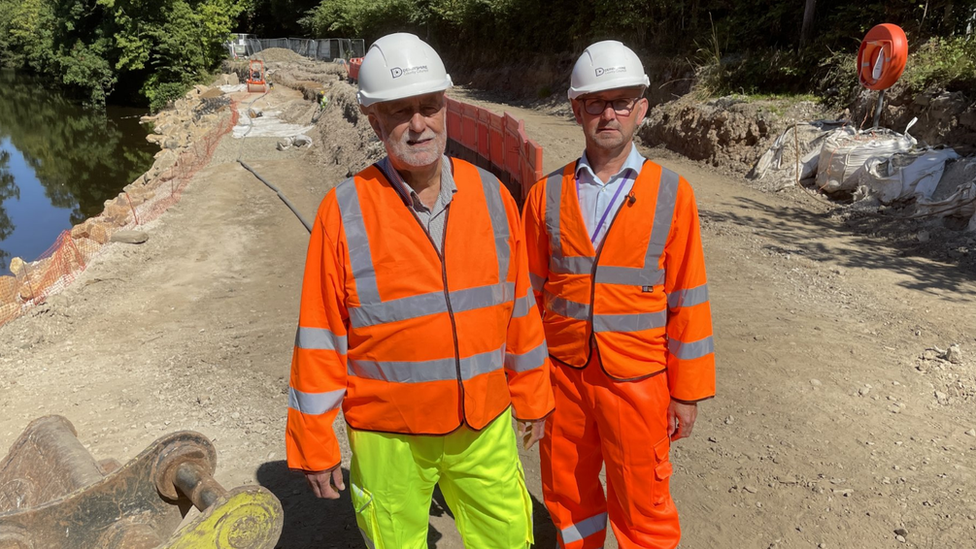
Kewal Singh Athwal (left) and Julian Gould said funding was key to dealing with the problem
Kewal Singh Athwal, cabinet member for highways assets and transport, said: "We totally understand their frustration but we are governed by the elements.
"Since we first started working on this area it has had two or three more landslips and we have had to redesign the whole scheme."
'Dangerous cocktail'
Initially the repairs involving putting piles into the river bank but this approach was changed to digging down to bedrock and using 4,000 tonnes of rock to support the slope.
Mr Athwal said: "It is a very big drain on our coffers - in fact we don't have any specific funding for repairing landslips."
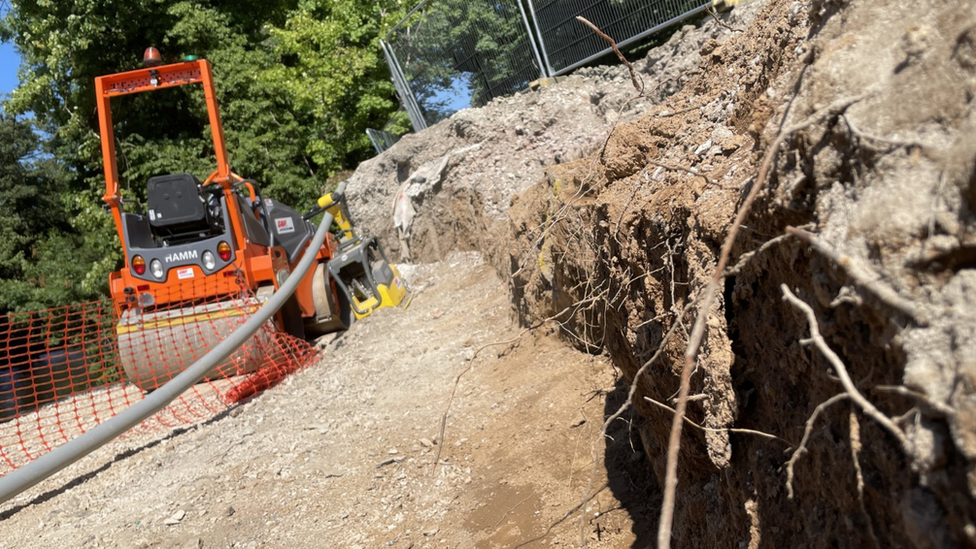
Experts said Derbyshire was facing some particularly challenging situations
Julian Gould, county council highways director, said climate change was a big factor in the problem.
"High volume storms and long periods of wet weather increase the amount of water in the ground," he said.
"That, combined with the geology in the steep-sloped, upper parts of the county is a dangerous cocktail which leads to landslips."
Dr Vanessa Banks, from the British Geological Survey, said: "Derbyshire has some specific problems to do with the interbedding of clay soils with sandstone.
"Derbyshire is not unique - I can think of landslides in Scotland and on the south coast - but Derbyshire is facing some particularly challenging situations.
"Many of the landslides in this area are driven by meteorological events, particularly intense, heavy rainfall.
"And the intensity of these rainfall events has increased because the climate seems to be shifting in this direction."
The council said it hoped to reopen Lea Road by the end of the year.

Follow BBC East Midlands on Facebook, external, on Twitter, external, or on Instagram, external. Send your story ideas to eastmidsnews@bbc.co.uk, external.
Related topics
- Published8 August 2022
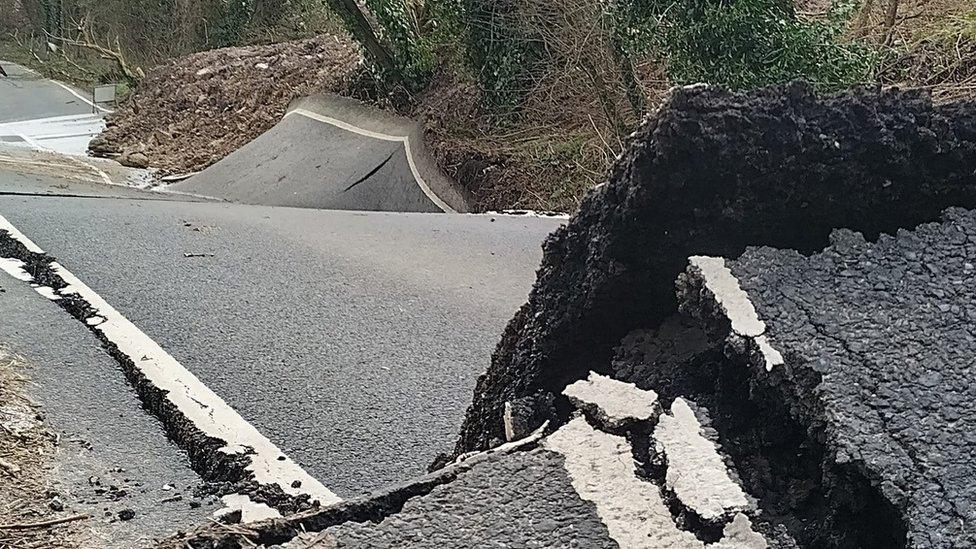
- Published26 April 2022
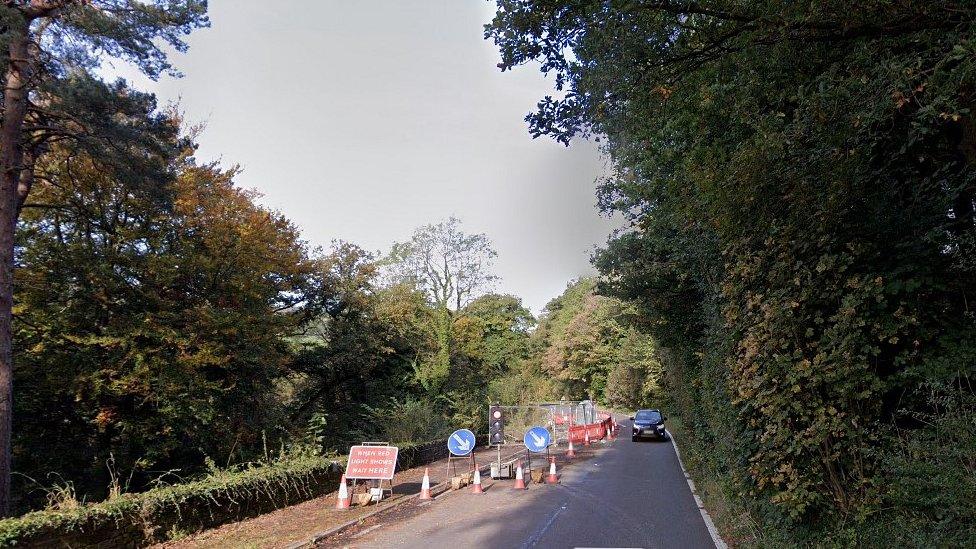
- Published29 March 2022
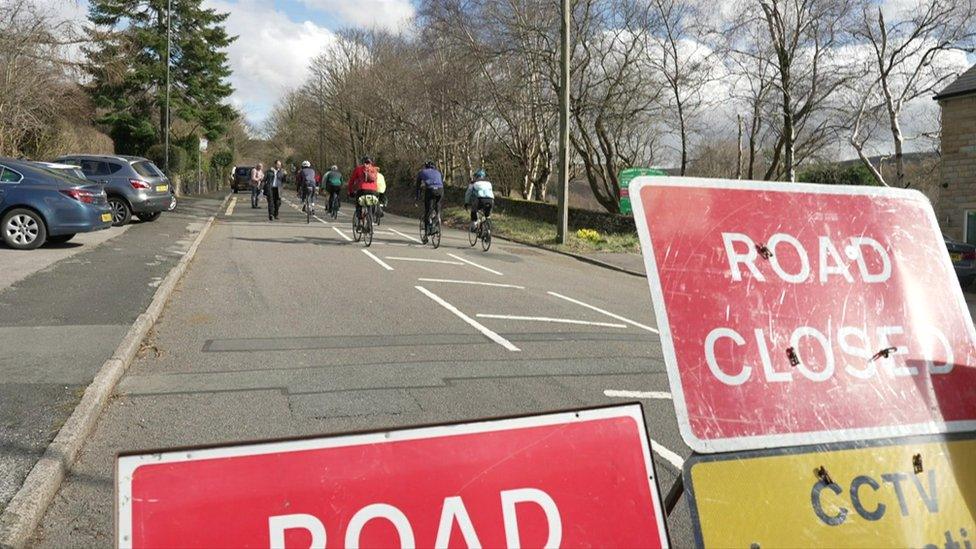
- Published6 March 2022
